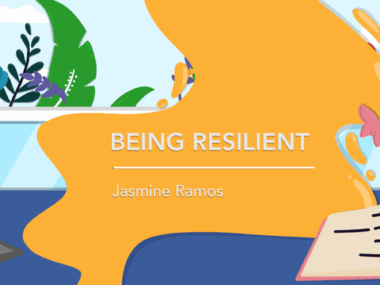How the pandemic changed online school for the better
My return to school highlights how much has improved in recent years
Written by |

I’m about to date myself, but hang with me for a sec.
Back in my day (which wasn’t really that long ago; I’m not that old), online school was unthinkable. Perpetually online folks like me were seeing the writing on the wall and begging people in power to embrace the times, but it was slow going. You could chat instantaneously with someone on the other side of the globe, but earning a degree via the internet? Be realistic.
Graduating high school was a big deal, because it meant I could no longer rely on things like my individualized education program and case manager. College was a different beast altogether, complete with razor-sharp teeth and a lurking sense of dread. I attended private school my freshman year and learned very quickly that, in the absence of government funding, many universities didn’t seem to care much about their disabled students.
Needless to say, I transferred to public school as quickly as I could. I graduated from the University of Wisconsin-Milwaukee in 2017 and went on to get my master’s degree in community care from Indiana Wesleyan University.
Online, but not optimized
Both programs were fully online, except for a one-week residency in Marion, Indiana, for my master’s program. Both programs were also pretty accessible. I was relieved. Finally, after years of toil, I could learn in the comfort of my own home without worrying about transportation or germs.
Still, there were drawbacks. Online school was cutting-edge at the time; it wasn’t hailed as a viable alternative to in-person classes as it is today. The platforms were clunky and, at times, trivialized. Professors were slow to adapt, and often reluctant. As perpetually online as I was, I made the transition with ease, but I can see how students with less experience might’ve felt at a loss.
I was right at home, but that didn’t stop me from feeling the growing pains. Textbooks were rarely offered in eBook format, so disability resources had to scan every page of a required text and send it to me in a PDF. The learning platform was only available via desktop, which meant I had to get creative when it came to doing schoolwork on the go.
A forced grow-up
I finished school in April 2020, right in the middle of the pandemic. I remember writing a somewhat snarky Substack post about the sudden interest in online school. People were complaining about it, if I recall, or expressing concerns as to its efficacy, so naturally I had to present myself as evidence that online school is fine, actually. There’d be growing pains, I said, but it’d all turn out OK.
Lockdown happened. Online school became necessary in ways it wasn’t before. Suddenly, people cared about the accessibility of higher education. I wasn’t in school at the time, so I didn’t necessarily care, but I did find it interesting that people were jumping on a bandwagon I’d been riding mostly solo for a decade.
Fast forward to today, and I’m back in school to the surprise of everyone, especially me. My dream school — the University of Minnesota — offers a fully online bachelor’s degree in English, which is something I’d only dreamed about as a high school graduate. The program is completely accessible, including electronic textbooks available to all students and a mobile app for the institution’s learning platform.
I appreciate how accessible online school has become, but there’s something bittersweet about it all. As a freshman in college, I had to fight for every single one of my accommodations. When I asked about the possibility of virtually attending classes to avoid getting sick, I was told it was simply not possible. Then, when online school became a necessity for most of the population, suddenly it was more than possible; it was a brilliant idea.
It’s the way the world works. I get that. There’s no demand, and then there is, and everything changes overnight. But I do find it funny that many of the accommodations needed by disabled folks only became plausible when abled folks need them as well.
Now that I think about it, maybe it’s not that funny after all.
Thanks for reading! You can follow me on Instagram and Threads, subscribe to my newsletter, or support me on Substack.
Note: SMA News Today is strictly a news and information website about the disease. It does not provide medical advice, diagnosis, or treatment. This content is not intended to be a substitute for professional medical advice, diagnosis, or treatment. Always seek the advice of your physician or other qualified health provider with any questions you may have regarding a medical condition. Never disregard professional medical advice or delay in seeking it because of something you have read on this website. The opinions expressed in this column are not those of SMA News Today or its parent company, Bionews, and are intended to spark discussion about issues pertaining to spinal muscular atrophy.








Leave a comment
Fill in the required fields to post. Your email address will not be published.